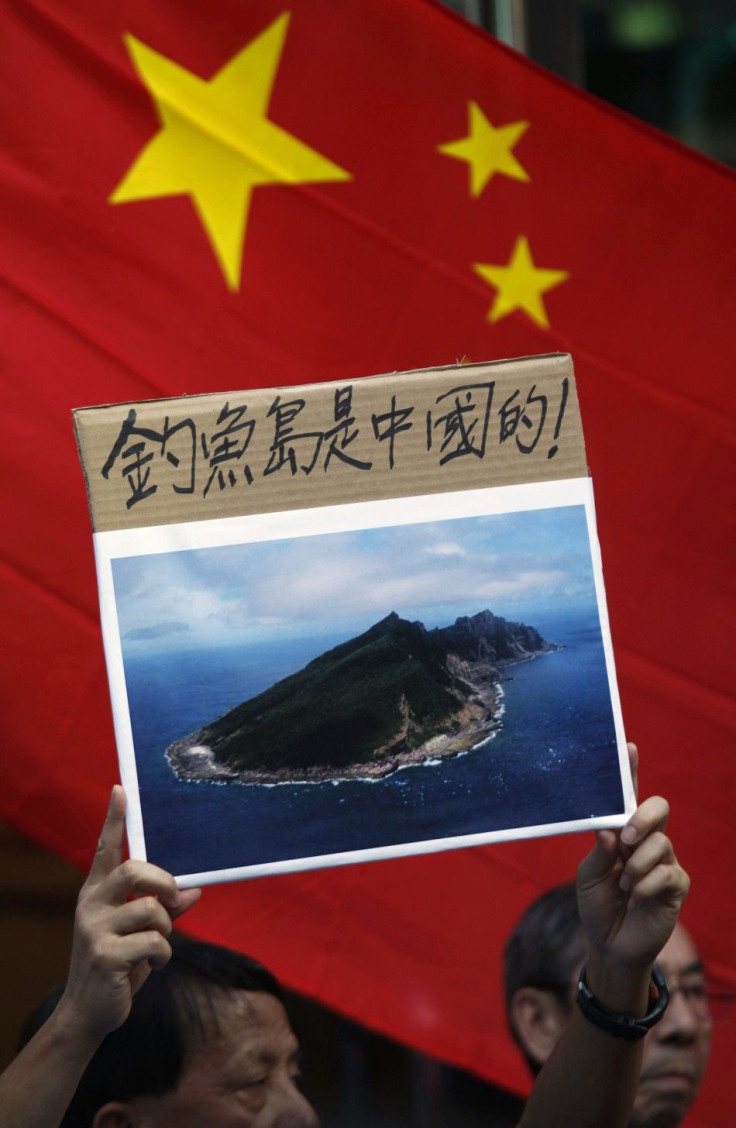Japan Buys Disputed Islands; China Sends Surveillance Ships

Two China Marine Surveillance (CMS) ships reached the waters around the disputed islands claimed by Japan and China in the East China Sea Tuesday morning even as the U.S. cautioned both the nations against escalating tensions.
China's state-run Xinhua news agency said the ships were sent "to assert the country's sovereignty," and were prepared to "take actions pending the development of the situation."
Japan confirmed Tuesday that it had signed a contract worth 2.05 billion yen ($26 million) to buy three of the five main islands in an archipelago called Senkaku in Japanese and Diaoyu in Chinese, which are currently under private ownership. The Japanese Coast Guard will administer the islands following the transaction.
However, since China disregards the Japanese private ownership of the islands, the deal is not expected to radically alter the situation.
Xinhua said Japan's decision to buy the islands was "ridiculous and absurd" adding that it was "an open provocation against China, the rightful owner of the Diaoyu Islands."
The newspaper said Chinese patrolling was a "slap in the face to Japan's plot to "nationalize" the Diaoyu Islands," and demonstrated the Chinese government's "firm and unshakeable determination to safeguard its sovereignty and territorial integrity."
The commentary said China's actions to safeguard its sovereignty over the islands have won "widespread applause from the Chinese public."
Washington, meanwhile, warned that the escalation of tensions between China and Japan would have global repercussions.
"This is the cockpit of the global economy and the stakes could not be bigger and the desire is to have all leaders to keep that squarely in mind," U.S. Assistant Secretary of State Kurt Campbell was quoted saying by Reuters.
"We think in the current environment we want cooler heads to prevail, frankly," Campbell said while answering questions at a debate held by the Centre for Strategic and International Studies, Washington.
Tensions between the two Asian powers have been running for decades and escalated last month when some Chinese nationals were photographed hoisting flags on one of the islands on Aug.15, the 67th anniversary of Japan's surrender in the World War II. The Chinese were arrested by the Japanese authorities and deported to Hong Kong two days later.
Within a few days, a group of Japanese nationalists landed on one of the disputed islands, waving the Japanese flag in retaliation.
The incidents set off a new tug-of-war between the two nations, with the Chinese people taking to the streets in the biggest anti-Japan demonstration in seven years, attacking Japanese restaurants and vehicles in Shenzhen and Hangzhou in the eastern province of Zhejiang. Crowds also staged a noisy sit-in at the gates of the Japanese consulate in Guangzhou in August, burning Japanese flags.
Xinhua said Diaoyu Islands and the affiliated islands have been China's "sacred territory since ancient times, which is supported by historical facts and jurisprudential evidence."
"In history, Japan stole the so-called "administrative rights" of the Diaoyu Islands through unjust means. However, the Japanese government failed to make self-examination of its behaviors," Xinhua said. "Long gone are the days when the Chinese nation was subject to bullying and humiliation from others. The issue of the Diaoyu Islands concerns sovereignty, territorial integrity and national dignity, there is no room for making a concession."
© Copyright IBTimes 2025. All rights reserved.






















